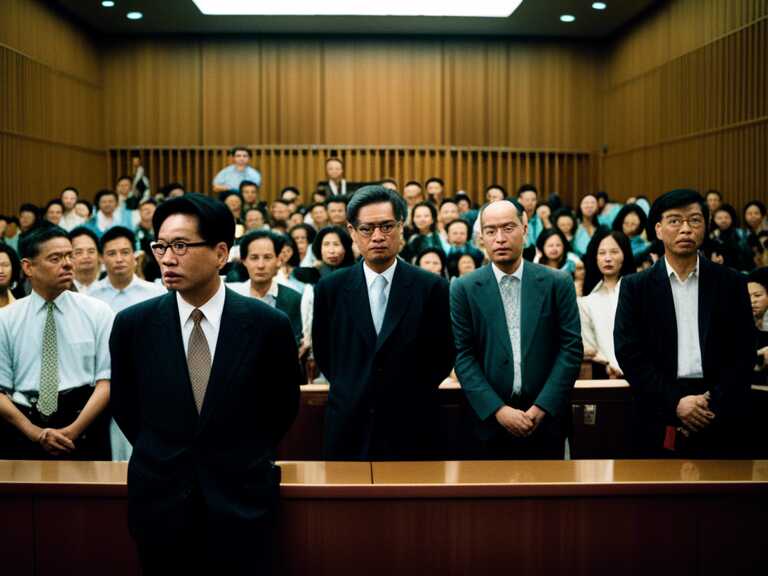
Hong Kong Sedition Case Tests Press Freedom as Verdict Expected for Pro-Democracy Journalists
Hong Kong's sedition trial of two journalists tests press freedom, reflecting the decline of media rights in the territory since national security laws were imposed.

A decision in Hong Kong regarding former journalists' sedition case is anticipated on Thursday. The case against the former editor-in-chief and acting editor-in-chief of a defunct pro-democracy newspaper is being closely watched as a significant test of press freedom in Hong Kong. The trial may establish a precedent for future cases involving Journalists and news organizations in related contexts.
Historical Context
The two journalists, Chung Pui-kuen, the former editor-in-chief of Stand News, and Patrick Lam, the newspaper's former acting editor-in-chief, have both pleaded not guilty to conspiracy to publish seditious materials. The sedition law they are being prosecuted under dates back to Hong Kong's time as a British colony. The Hong Kong authorities have recently revived the sedition law as part of a broader crackdown on dissent, following the mass antigovernment protests that sparked unrest in the city for months in 2019.
Importantly, this is the first instance since Hong Kong's return to Chinese rule in 1997 that the sedition law had been applied to media. Notably, the return to Chinese rule was accompanied by the condition that civil liberties such as press freedom would be preserved for 50 years. This presents a crucial test of the extent to which these liberties are being upheld in the present day.
Legal Implications and Potential Consequences
The legal proceedings against Chung and Lam have dragged on for nearly two years since the trial began in October 2022, with the verdict having been postponed multiple times. The two former journalists now face the possibility of enduring a prison sentence of up to two years and a fine of approximately $640. The prolonged nature of the trial raises concerns about the impact of such legal battles on press freedom and the impact on media institutions.
Impact on Press Freedom in Hong Kong
The closure of Stand News in December 2021, following a raid on its office by national security police and the freezing of its assets, marks a troubling development in the landscape of press freedom in Hong Kong. These events were preceded by the arrest of Chung, Lam, and five others, with only Chung and Lam subsequently facing charges in connection with the Stand News case. The parent company of the newspaper, Best Pencil (Hong Kong) Ltd., was also charged but was not represented in the trial. These events have been met with criticism from Western officials, including Secretary of State Antony Blinken, who stated, “Journalism is not sedition.”
Press Freedom Decline in Hong Kong
The grim trajectory of press freedom in Hong Kong is underscored by its ranking in the Reporters Without Borders’ annual World Press Freedom Index, where it placed 135th out of 180 countries and territories this year, a stark decline from its 70th position in 2018. The Hong Kong Journalists Association 's annual press freedom survey revealed a dismal score of 25 out of 100, the lowest since the survey's inception in 2013.
This decline has resulted in heightened concern among media workers, particularly in light of the new local national security legislation, known as Article 23, which has been criticized for its vaguely worded provisions. While the Hong Kong government maintains that freedom of the press and freedom of speech remain protected under the city’s mini-constitution and Bill of Rights, it asserts that these rights are not absolute. This assertion raises further concerns about the scope of press freedom and the potential for increased government oversight and control over the media.
Future Implications for Press Freedom in Hong Kong
As the verdict in the sedition case against the two journalists approaches, the implications of this trial extend far beyond the individuals involved. The decision will serve as a crucial precedent for the treatment of journalists and media organizations operating in a contentious political environment, particularly within the context of diminishing press freedom.
The demand for an independent press and the ability of journalists to report freely on crucial political developments remain pressing concerns, as the outcome of this case will shape the future landscape of press freedom in Hong Kong and potentially serve as a litmus test for other regions facing similar challenges to media independence.
Share news















